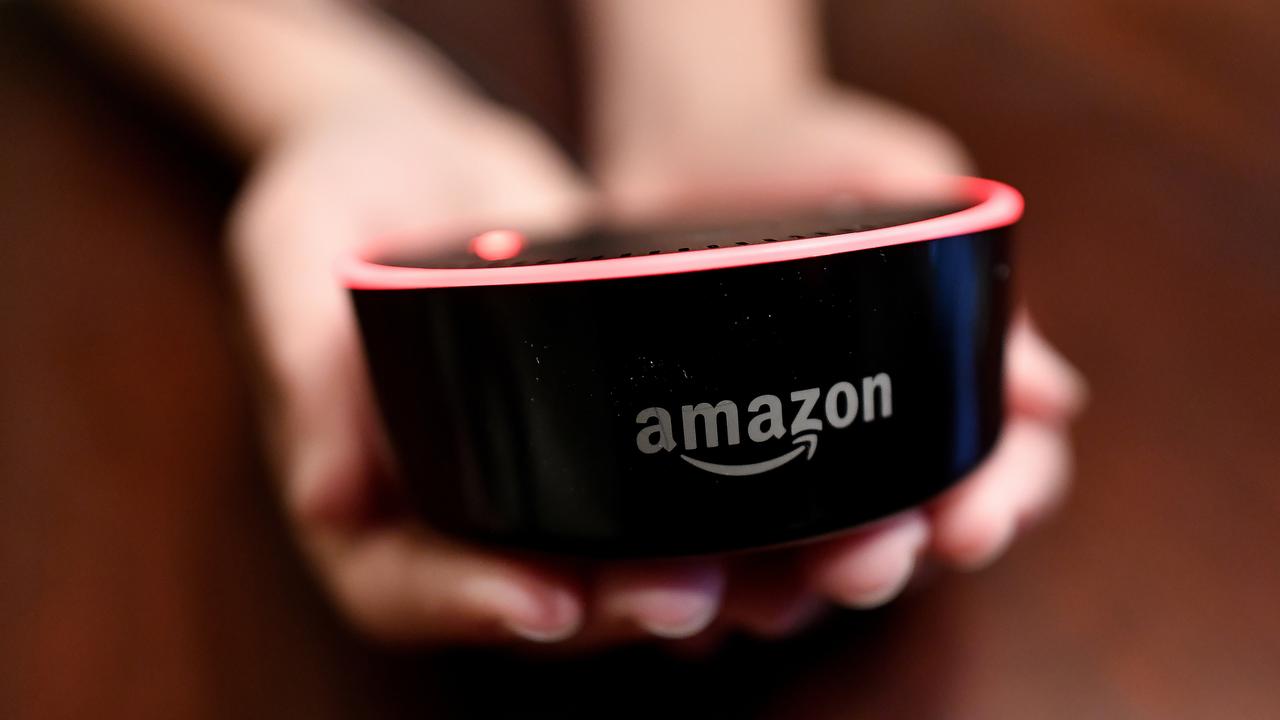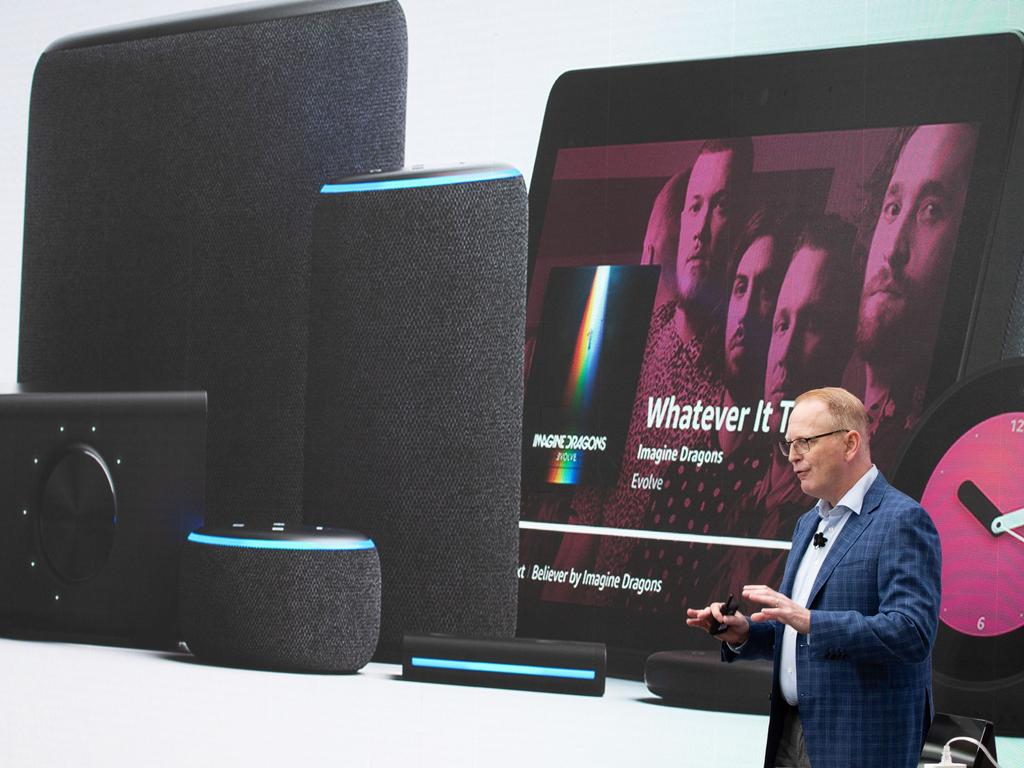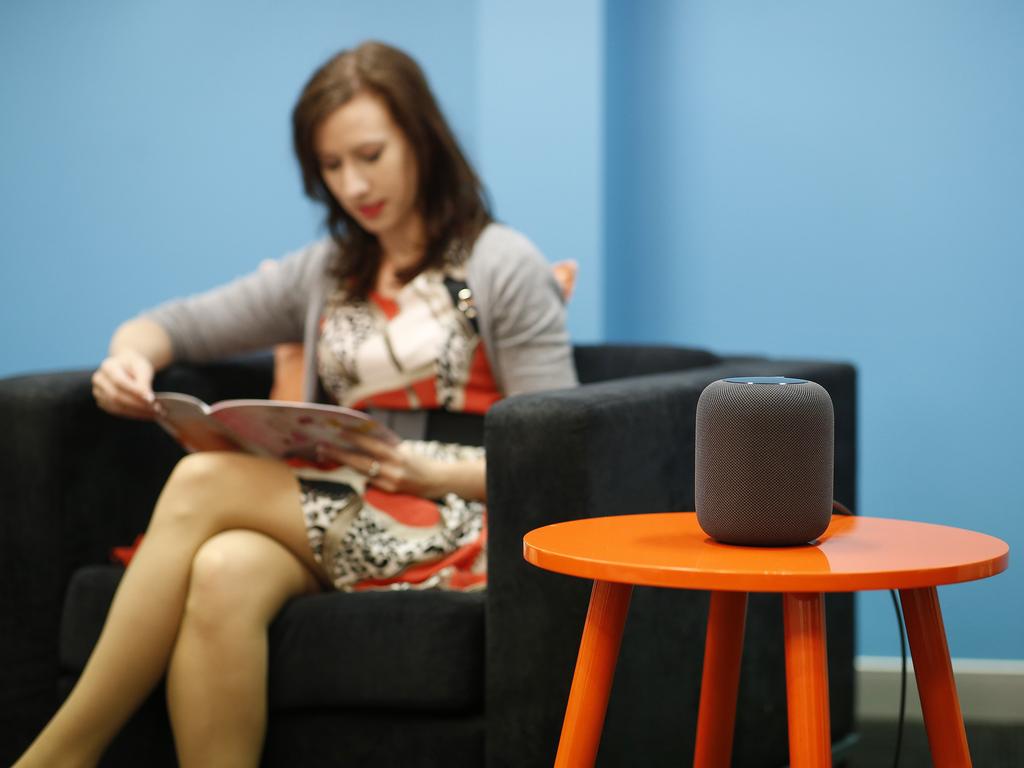Amazon Echo recordings may hold key to New Hampshire murders
One woman was stabbed 43 times. Another had her skull crushed. Now a judge has ordered Amazon to hand over their Echo smart speaker recordings that could hold critical clues to their murders.

New Hampshire detectives hope to have the ultimate witness at their fingertips when it comes to cracking a double-murder case: an Amazon Echo smart speaker.
They’re sold as being the ultimate digital home assistant.
They’re there to entertain you. To answer questions. To control your electronics.
But are internet-enabled smart speakers also innocent bystanders?
Do the recordings they constantly make of their surroundings constitute an eyewitness statement?
On Saturday, a judge ordered Amazon to hand over all recordings made by one of its Echo devices at a residence in Farmington, New Hampshire.
It was a house were Christine Sullivan lived with her boyfriend.
She was found dead in the property’s backyard on January 29 last year, along with her friend and housemate Jenna Pellegrini.
Police say the bodies had been concealed under a tarpaulin. Several knives were found buried nearby.
Sullivan, aged 48, had been stabbed eight times and had her skull fractured.
Pellegrin, aged 32, had been stabbed 43 times.

CRIME AND PUNISHMENT
When the property’s owner, Dean Smoronk returned home from a trip, he found bloodstains through the house and that his girlfriend, Sullivan, was missing.
So he called police.
“In the upstairs bedroom, he showed them a large blood stain on a mattress and downstairs in the kitchen area and on the refrigerator,” a detective covering the case told the court.
“I checked the tarp, and it felt like something was in it,” Strong said. “I opened the lower corner and exposed a human foot that was cold to the touch.”
A suspect — Timothy Verrill, 34 — has pleaded not guilty to charges of second-degree murder. He’s an associate of Sullivan’s boyfriend, Dean Smoronk.
Police say Verrill had been entrusted with the property’s security code. And surveillance video had caught him in the presence of both women about the estimated time of their deaths.
Verrill had also been seen buying cleaning materials before returning to the property, the court was told.
No motive has been given.
And while the evidence against Verrill is substantial, police want more.

They have seized an Amazon Echo from inside the house. Now they want access to it.
“Investigators believe Sullivan was attacked in the kitchen of 979 Meaderboro Road where the Echo was located, and prosecutors believe there is probable cause to believe there is evidence on the Echo, such as audio recordings of the attack and events that followed it,” court documents reads.
New Hampshire police believe up to two days worth of recordings are associated with the Amazon Echo they seized.

THE WALLS HAVE EARS
At the centre of the new court order is an ‘Alexa voice assistant’ enabled Amazon Echo home entertainment and management system.
For the artificial intelligence ‘Alexa’ to respond to verbal commands, the Echo device must constantly assess everything said within its reach.
It’s listening for Amazon-designated ‘wake-up words’. When such a ‘wake-up word’ is detected, the Echo device records what its integrated microphones pick up — as well as for a brief period beforehand.
Such recordings are saved until they are manually deleted.
RELATED: Google rep spills beans — everything you say is being recorded
As with all virtual assistant manufacturers, Amazon assures its customers these recordings are secure and used only for the purpose of controlling the Echo and affiliated Alexa-enabled devices.
But concerns about the use of such voice monitoring for marketing purposes, along with its security from hackers and other third parties, have surrounded the technology since it was introduced several years ago.
Such voice-activated virtual assistants have become increasingly popular as part of the services offered by mobile phones, tablets and computers, as well as the new household speakers.

Microsoft has tied its ‘Cortana’ voice recognition AI to virtual assistants.
Google offers an internet-enabled “Home” speaker system.
And Apple has joined the fray with its “HomePod” device using the ‘Siri’ voice recognition system.
Several other companies have since jumped on the bandwagon with various cut-price alternatives.
RELATED: Australian AI invention can divine your darkest intentions
Virtually all share recordings with a central-server based artificial intelligence to analyse commands and record your activities.
Such integrated virtual assistants are “both a blessing and a curse,” Richard Henderson, a global security strategist at security firm Absolute, told Fox News. “It’s a blessing because it really does provide a ‘one-stop shop’ of all your activity across all your various (devices), like your Android phone, your browsing and Gmail, as well as the assistant. But it’s also a curse because it really demonstrates the level of data that many massive technology companies collect in order for them to profit.”

COURT ORDER
An Amazon spokesperson said earlier it would not release the recordings “without a valid and binding legal demand properly served on us.”
The judge agrees.
So he issued just such a legal demand.
“The State’s motion to search in lieu of a search warrant is granted,” the ruling by Strafford County Superior Court Presiding Justice Steven M. Houran states. “The court directs Amazon.com to produce forthwith to the court any recordings made by an Echo smart speaker with Alexa voice command capability, FCC ID number ZWJ-0823, from the period of January 27, 2017 to January 29, 2017, as well as any information identifying cellular devices that were paired to that smart speaker during that time period.”
RELATED: How China built the ultimate surveillance state
Amazon dropped an objection to an Echo search warrant in a death investigation last year after a suspect, who owned the speaker, agreed to release the information.
“Amazon does not seek to obstruct any lawful investigation but rather seeks to protect the privacy rights of its customers when the government is seeking their data from Amazon, especially when that data may include expressive content protected by the First Amendment,” company lawyers wrote at the time.
It is yet to respond to the New Hampshire Court order.



